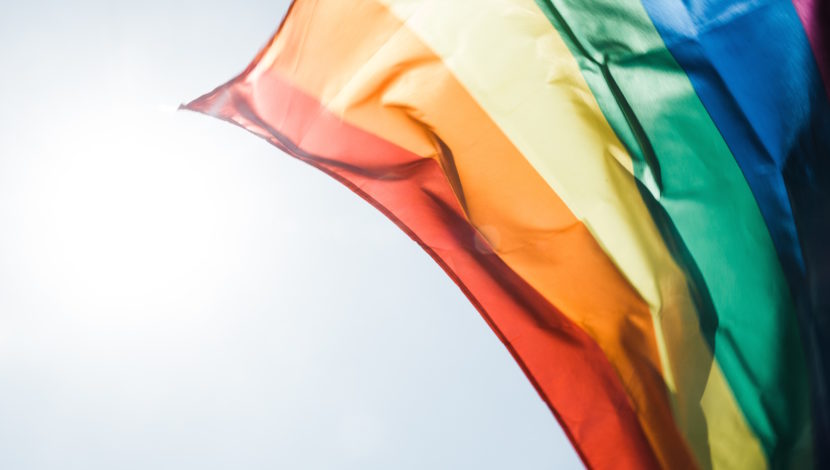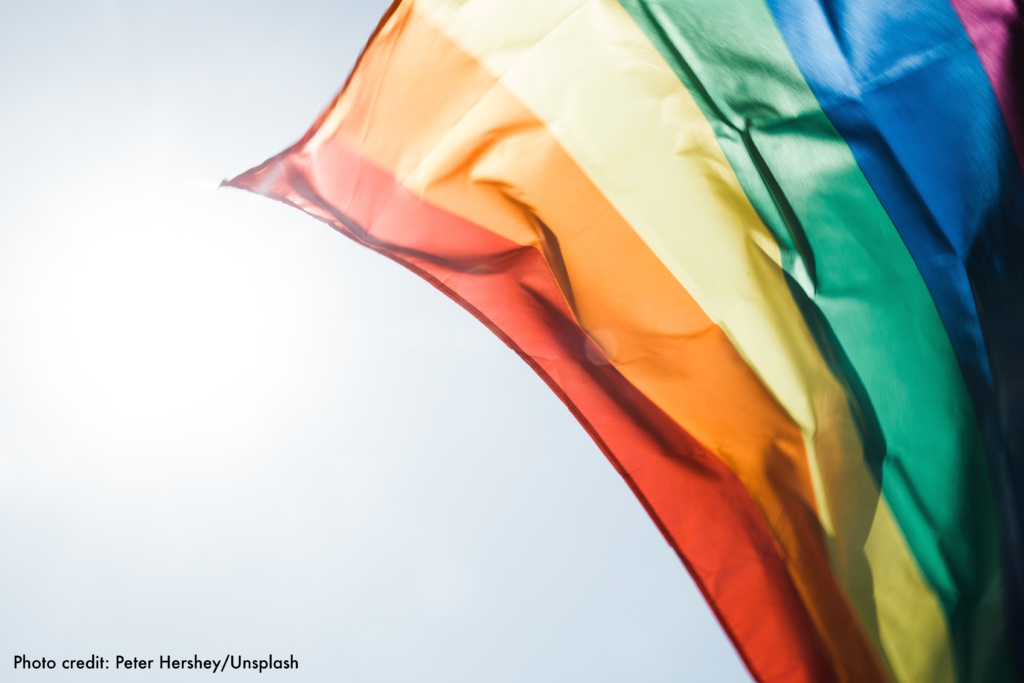The Unitarian Universalist Service Committee advances human rights through grassroots collaborations.
Celebrating Pride: Reflecting on SOGI Rights in Southern Africa

By on June 28, 2017
Every June we celebrate Pride, taking a moment to recognize, and recommit ourselves to, the ongoing struggles of LGBTQI communities around the world. In the spirit of Pride, I was fortunate to attend UHAI-EASHRI’s “Changing Faces, Changing Spaces” (CFCS) conference in Kenya, and to reflect on the importance of the work of our Sexual Orientation and Gender Identity (SOGI) program partners in Southern Africa.
CFCS provides a unique space in which activists from across Africa can come together to share their work, stories, and strategies about how they are supporting their respective communities. With donors in the room, the activists are empowered to share their perspectives and priorities and to drive a spirited conversation about how to advance the rights of LGBTQI communities across the continent.

Resisting the Marginalization of LGBTQI Identities
One of the discussions that surfaced time and time again was how to resist policies and practices that are designed to erase or marginalize the identities and histories of LGBTQI communities, in response to efforts to frame homosexuality as “un-African” or “un-religious.” For many participants, there was no tension in being LGBTQI and African or LGBTQI and religious. In fact, as several pointed out, many African languages do not address gender as a binary and cultures across the continent have historically been accepting of LGBTQI communities. With this in mind, it is worth asking, how homosexuality became framed as “un-African” or “un-religious”?
As many participants noted, citing research by Kapya Kaoma, a Zambian researcher and Anglican Priest, the U.S. religious right has provided significant funding on the continent to promote homophobia. They have worked to frame homosexuality as a Western concept that has been imposed on Africa, that is “un-Christian” and “un-African.” This agenda has been reinforced through relationships with conservative religious leaders across the continent.
Asserting and Reclaiming Identity
Given the promotion of homophobia across Africa by the U.S. religious right and the ways in which religion is being used to marginalize and erase the contributions and histories of LGBTQI communities, much attention was given to the role of faith communities in asserting and affirming LGBTQI identities and narratives. UUSC’s SOGI rights partners have been engaging in such efforts in Southern Africa, working with allies in faith spaces to promote a narrative and create safe spaces that promote the rights of LGBTQI communities.
While the strategy is one of winning hearts and minds is a long-term change, it is necessary to challenge the dominant and incorrect narrative that homosexuality is “un-African” or “un-religious.” Just as no one lives single issue lives, CFCS participants made it clear that no one person has only one single identity. Rather, everyone possesses a wide array of identities that comprise who they are, such as being LGBTQI and African, or LGBTQI and religious.
In this regard, UUSC’s partners Inclusive and Affirming Ministries, Al-Fitrah Foundation (formerly The Inner Circle), and TULINAM have been doing critical work to collaborate with progressive faith allies to promote respect for the rights of LGBTQI communities in Southern Africa. Through collaboration with progressive faith allies, UUSC’s partners are actively challenging the rhetoric of U.S.-based religious conservatives and creating a space for LGBTQI individuals to assert and reclaim their identities. After spending several days with the activists carrying working on the ground to support the rights of LGBTQI communities, I cannot help but feel that the work of UUSC’s partners is as relevant and important today as it ever has been.
Continuing the Struggle
In the true spirit of CFCS, activists working to promote LGBTQI rights have come together to connect and to reclaim their space. By centering their voices, struggles, and priorities at this conference, it was possible to deeply reflect on the way forward. As June comes to a close, it is important to continue this act of deep self-reflection on the contributions of LGBTQI communities in Africa and around the world–not just for one month, but all year long. This way, we are better equipped to support their struggle as allies and partners, moving forward together.
Read This Next
A Valentine’s Message to Those Transforming Hearts, Minds, and Lives
This Valentine’s, we’re sending gratitude and solidarity to all our tireless grassroots partners who work to build safer, more just, and welcoming communities for all. Read More →